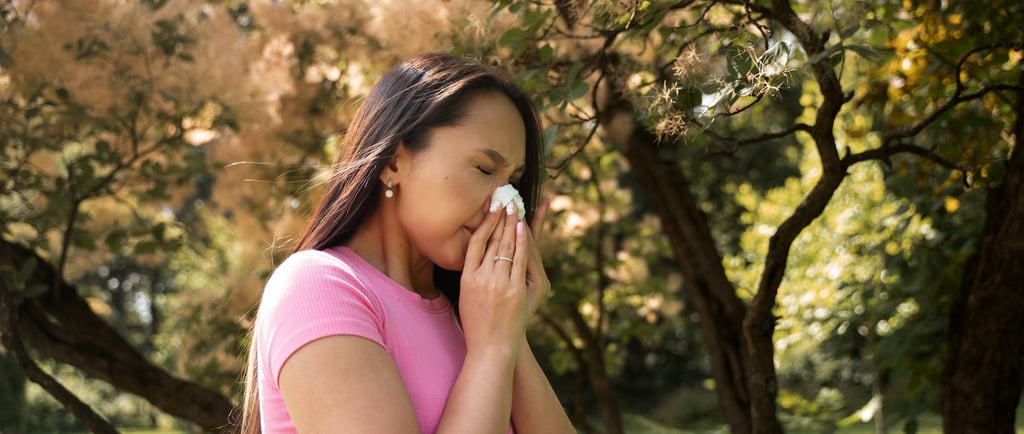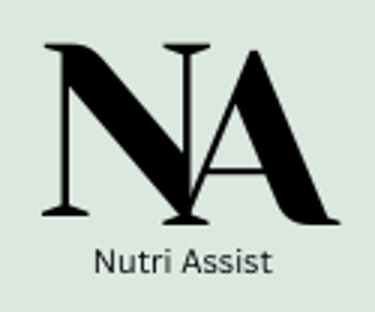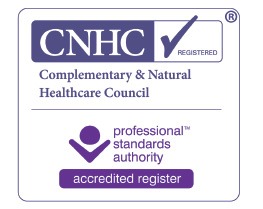Hay Fever Relief Through Food:
"What to Eat (and Avoid)"


If like me, you long for winter days to be over and welcome the blooming of trees only to find that you can’t stop sneezing, your eyes and throat are itchy – hay fever sufferers, I share your pain!
Hay fever is a seasonal allergy, caused by tree pollen, grass pollen, weeds and spores. People can be allergic to one or all of these and depending on the year, this may start as early as February when trees flower, through June when grass pollen is in the air, to September when the weather cools and the humidity favours the growth of spores, indoors and outdoors.
What are hay fever symptoms?
- Runny or blocked nose, sneezing; loss of smell
- Itchy and runny eyes
- Itchy ears, throat, mouth
- Fatigue and difficulty sleeping
- Headache
- Difficulty breathing, wheezing in asthmatic individuals
- Flare-up of skin conditions if a person suffers from atopic dermatitis
Why do some people suffer from hay fever and others not?
There is a genetic element to this, and hay fever often runs in families. The presentation and severity of symptoms vary from person to person. In these people, their immune system is over-reactive and see pollen and spores (here referred to as allergens) as the ‘invader’. As a result, the body’s immune cells release histamine. Histamine is the chemical that causes blood vessels to dilate and produce more mucus, causing inflammation, itchiness and swelling, for example, in the lining of the nose and lungs. Environmental exposure to air pollutants, especially in urban areas, has also been linked to increased hay fever symptoms.
What can we do to reduce symptoms?
1. Try to avoid the allergens by staying indoors or keeping the windows shut if possible. Going out in the morning and evening, when pollen concentration is high, might be worse.
2. If you must go out, nose balms and wrap-around glasses are available to reduce pollen exposure.
3. As soon as possible, change your clothes and/or shower to remove pollen.
4. Using air filters indoors can provide symptom relief to hay fever sufferers.
Many people reach for medications such as antihistamines, nasal sprays and eye drops. These may provide quick relief, possibly accompanied by side effects, whilst not addressing the root causes. Exploring alternative natural solutions such as what you are eating, can work on reducing inflammation in the body, support the detoxification process and strengthen the immune system.
Some foods are high in histamine and can make symptoms worse during hay fever season. Although rich in vitamins, minerals, fibre and good for gut health, foods such as strawberries, spinach, citrus fruits and fermented foods (sauerkraut, kombucha, kimchi, cheese) can contribute to histamine overload if eaten in large amounts. Alcoholic drinks such as beer, wine count as fermented products and are high in histamine. Try avoiding these at times when your body is hyper-reactive to allergens and note if there is an improvement in your symptoms.
Increasing consumption of certain foods can reduce hay fever symptoms:
- Quercetin, sometimes referred to as a ‘natural antihistamine’. It is found in red onions, apples, broccoli and can help prevent the release of histamine. Its antioxidant and anti-inflammatory properties can reduce overall inflammation in the body.
- Vitamin C found in various fruits and vegetables is a powerful antioxidant and anti-inflammatory compound that can reduce histamine levels and support the immune system. However, be cautious of which fruits and vegetables you are eating as some listed above and others may be high in histamine.
- Turmeric, garlic, extra-virgin olive oil are beneficial as they are high in anti-inflammatory compounds.
The foods listed above are not exhaustive. If you would like to find out if natural solutions, dietary changes or use of supplements can help reduce symptoms and perhaps allow you to enjoy being outdoors during hay fever season, get in touch by email or give me a call for a free 15-minute chat.
This post is for informational purposes only and should not be construed as medical advice. If hay fever symptoms are severe or persistent, please consult your doctor or pharmacist.




